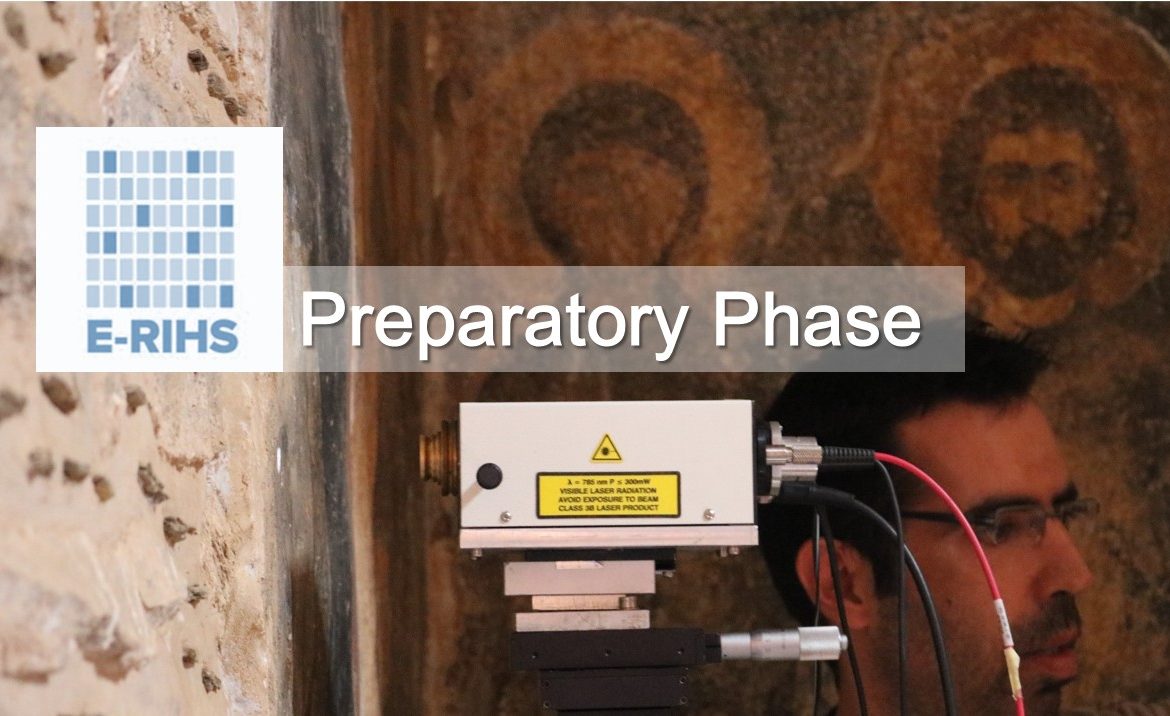E-RIHS, The European Research Infrastructure for Heritage Science Preparatory Phase
1 February 2017, to 30 September 2020
Project No: 739503, Co-ordinator: D. Anglos and S. Sotiropoulou
E-RIHS is a distributed research infrastructure in the field of Heritage Science
Mission
E-RIHS mission is to deliver integrated access to expertise, data and technologies through a standardized approach, and to integrate world-leading European facilities into an organisation with a clear identity and a strong cohesive role within the global heritage science community.
New instruments, new protocols and new techniques have a decisive impact on heritage science research, enabling improved understanding of heritage objects and sites. E-RIHS ERIC stimulates innovation in large-scale and medium-scale instrumentation, portable technologies and data science.
Through interdisciplinary access to the four platforms (E-RIHS ARCHLAB, E-RIHS DIGILAB, E-RIHS FIXLAB, E-RIHS MOLAB), E-RIHS ERIC supports a wide variety of research, from smaller object-focussed case studies, to large-scale and longer-term collaborative projects. Proposals for access are handled through a common entry point, their evaluation is based on excellence, following assessment by independent international peer review panels.
E-RIHS ERIC promotes good practices and develops or advances methods designed to respond to the specific needs of cultural heritage assets, whether material or digital: objects, collections, buildings and sites.
Vision
Fragmentation, duplication of efforts, isolation of small research groups put at risk the competitive advantage of European heritage science research, spearheaded so well in the past by its unique cultural heritage. The long‐term tradition of this field of research, the ability to combine science with innovation, and the support provided by EU‐funded projects and integrating activities such as EU‐ARTECH, CHARISMA and IPERION CH in conservation science, and ARIADNE in archaeology, represent the background of E-RIHS. E-RIHS exploits the synergy of the cooperation among the academy, research centres, museums and cultural institutions. Both the scientific and the socio‐economic importance connected with heritage science are nowadays evident. The research community has achieved the maturity necessary to make the leap towards a permanent European research infrastructure that will impact broadly on society and economy.
E-RIHS national hubs

National hubs operate at national level in diverse legal frameworks and represent national associations of partner facilities.
National hubs reinforce the commitment of the E-RIHS community to create and enlarge a pan-European research infrastructure.
Currently, the national hubs sharing the objectives of E-RIHS are active in Belgium, Cyprus, Denmark, France, Germany, Greece, Hungary, Italy, Malta, TheNetherlands, Poland, Portugal, Romania, Spain, Slovenia, Sweden and United Kingdom.
At the moment, 24 national nodes including partners beyond Europe are participating in the H2020 project IPERION HS (Integrating Platform for the European Research Infrastructure on Heritage Science), funded by the European Commission under G.A. 871034.
Funding

E-RIHS PP is a project funded by the European Commission H2020-INFRADEV-2016-2, under grant agreement n.739503. Views and opinions expressed are however those of the authors only and do not necessarily reflect those of the European Union. Neither the European Union can be held responsible for them.
The contents of the website reflect only the author’s view and the Agency and the European Commission is not responsible for any use that may be made of the information it contains.



